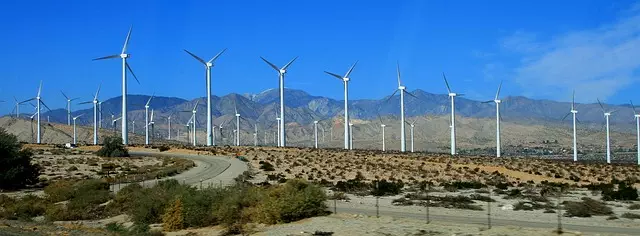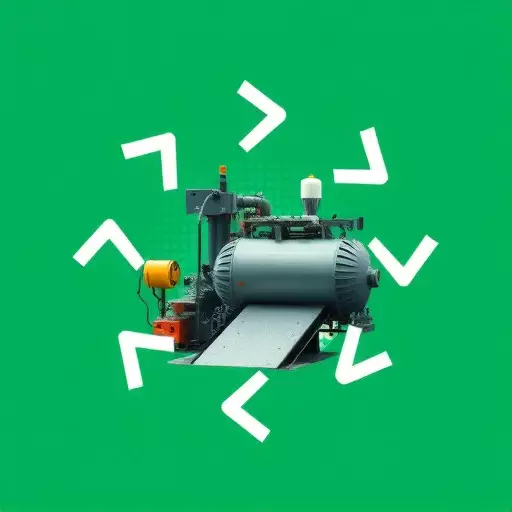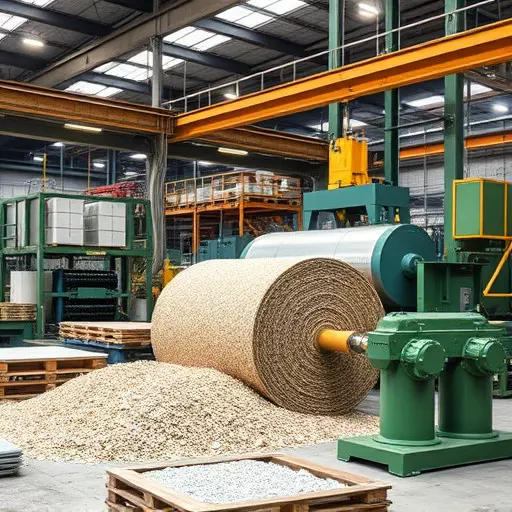Closed-loop recycling is transforming Toledo's approach to sustainable material processing within a circular economy, aiming to eliminate waste and pollution by recycling products back into new ones. This revolutionary system reduces reliance on virgin raw materials, lowers energy consumption, cuts greenhouse gas emissions, fosters economic growth, and paves the way for a greener future. Eco-friendly manufacturing practices, driven by innovative companies in Toledo, utilize recycled materials, energy efficiency, and advanced technologies to minimize environmental impact and promote resource conservation. These efforts align with global initiatives to establish a circular economy, ensuring a more resilient and eco-conscious world.
“Unveiling the Future of Sustainable Material Processing: Closed-loop Recycling and the Circular Economy Revolution
In an era where environmental sustainability is paramount, closed-loop recycling emerges as a game-changer. This comprehensive guide explores the transformative potential of eco-friendly manufacturing in fostering a circular economy. We delve into the fundamentals of closed-loop recycling, its impact on waste reduction and resource efficiency, and real-world examples like Toledo, Ohio’s successful journey.
From addressing manufacturing challenges to anticipating future trends, this article offers insights for businesses aiming to contribute to a greener world.”
- Understanding Closed-loop Recycling: A Foundation for Sustainable Material Processing
- The Role of Eco-friendly Manufacturing in Promoting Circular Economy
- How Closed-loop Systems Reduce Waste and Enhance Resource Efficiency
- Case Studies: Successful Implementation of Closed-loop Recycling in Toledo, Ohio
- Benefits and Challenges of Adopting Circular Economy Principles for Manufacturers
- Future Prospects: Trends Shaping Sustainable Material Processing in Eco-friendly Manufacturing
Understanding Closed-loop Recycling: A Foundation for Sustainable Material Processing
Closed-loop recycling, a cornerstone of sustainable material processing in Toledo and beyond, represents a paradigm shift towards eco-friendly manufacturing within the circular economy. Unlike traditional linear models where resources are extracted, products are made, then discarded, closed-loop systems meticulously design out waste and pollution, keeping materials in circulation. This innovative approach involves recycling used products back into new ones of equal or even higher quality, minimizing reliance on virgin raw materials.
This method not only conserves valuable resources but also reduces energy consumption and greenhouse gas emissions associated with manufacturing processes. By embracing closed-loop recycling, Toledo can forge a path towards a greener future where eco-friendly manufacturing becomes the norm, driving economic growth while safeguarding our environment for generations to come.
The Role of Eco-friendly Manufacturing in Promoting Circular Economy
In the pursuit of a more sustainable future, eco-friendly manufacturing plays a pivotal role in promoting and fostering a circular economy. This approach emphasizes the responsible production and processing of goods using sustainable materials, aiming to minimize waste and maximize resource efficiency. By adopting eco-friendly practices, manufacturers can significantly reduce their environmental footprint while contributing to a closed-loop recycling system.
Toledo, known for its commitment to sustainability, has emerged as a leader in sustainable material processing. The city’s businesses and industries are increasingly incorporating eco-friendly manufacturing techniques, such as using recycled materials, implementing energy-efficient practices, and adopting innovative technologies that reduce the reliance on non-renewable resources. This shift not only benefits the local environment but also aligns with global efforts to transition towards a circular economy, where resources are continuously circulated and reused, ensuring a more sustainable and resilient future.
How Closed-loop Systems Reduce Waste and Enhance Resource Efficiency
Closed-loop systems, also known as circular economies, represent a paradigm shift in sustainable material processing Toledo and eco-friendly manufacturing. Unlike traditional linear models that extract, produce, and discard, closed-loop systems meticulously recycle and reuse materials, minimizing waste generation significantly. This approach not only reduces the environmental footprint but also enhances resource efficiency. Every component becomes a valuable input for another process, creating a seamless cycle of production and consumption.
By adopting circular economy principles, manufacturers can substantially decrease their reliance on virgin resources. This is particularly crucial in an era where raw materials are often finite and their extraction detrimental to ecosystems. Closed-loop recycling promotes the use of recycled content, thus fostering a more sustainable and robust supply chain. Moreover, these systems facilitate product design innovations that prioritize durability, repairability, and recyclability, further solidifying the circular economy as a game-changer in eco-friendly manufacturing.
Case Studies: Successful Implementation of Closed-loop Recycling in Toledo, Ohio
In Toledo, Ohio, closed-loop recycling has emerged as a powerful model for sustainable material processing. The city’s initiative focuses on transforming post-consumer waste into new products, fostering an eco-friendly manufacturing ecosystem. By implementing advanced technologies and innovative partnerships, Toledo has successfully integrated closed-loop practices across various industries, from packaging to construction. This approach not only reduces landfill waste but also stimulates local job creation and promotes economic growth within the circular economy.
Case studies from Toledo highlight the benefits of this strategy. Local manufacturers have adopted recycled materials in their production processes, leading to significant cost savings and a decreased environmental footprint. The city’s comprehensive recycling infrastructure ensures that materials are efficiently collected, sorted, and processed, making eco-friendly manufacturing more accessible and appealing for businesses. As a result, Toledo serves as a prime example of how closed-loop recycling can drive sustainability, create a greener future, and benefit both the community and the environment.
Benefits and Challenges of Adopting Circular Economy Principles for Manufacturers
Adopting circular economy principles offers manufacturers numerous benefits, particularly in the context of sustainable material processing in Toledo. By focusing on eco-friendly manufacturing practices, companies can significantly reduce their environmental footprint. This shift allows for the efficient reuse and recycling of materials, minimizing waste generation and preserving natural resources. Manufacturers can also gain a competitive edge by reducing production costs associated with raw materials, as well as enhancing their reputation among environmentally conscious consumers.
However, embracing a circular economy is not without challenges. Implementing these principles requires significant changes in manufacturing processes and supply chain management. Initial investments in new technologies and infrastructure for material sorting, recycling, and upcycling can be substantial. Moreover, manufacturers must collaborate closely with suppliers and partners to ensure the availability of recycled materials that meet quality standards. Despite these hurdles, embracing circular economy practices is a step towards a more sustainable future, ensuring Toledo’s manufacturing sector remains competitive and environmentally responsible.
Future Prospects: Trends Shaping Sustainable Material Processing in Eco-friendly Manufacturing
The future of sustainable material processing lies in embracing a circular economy model, where waste is a thing of the past. With eco-friendly manufacturing gaining traction, we’re witnessing a shift towards innovative technologies that revolutionize how materials are used and reused. Closed-loop recycling, for instance, is an emerging trend that promises to minimize environmental impact and create new opportunities. This process involves recycling materials back into their original form or using them in alternative applications, ensuring a constant loop of resource utilization.
As the world navigates towards more sustainable practices, advancements in sorting technologies, material design, and chemical recycling will play a pivotal role. These developments aim to improve efficiency and reduce costs associated with recycling, making eco-friendly manufacturing not just an option but an economically viable choice. The trend toward sustainability is evident in the growing demand for biodegradable materials and the exploration of new bio-based resources, further strengthening the case for a closed-loop system.


